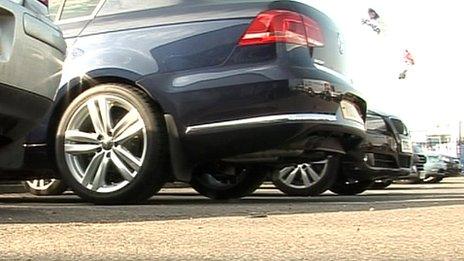Could tax on workplace parking spaces help tackle climate change?
- Published

The Scottish government is due to publish its climate and energy plans in the next week. Ahead of that, BBC Scotland has been looking at two radical schemes proposed by environmental groups. The first is a workplace parking levy introduced in Nottingham four years ago.

Scottish ministers are being urged to introduce a tax on parking spaces at the workplace when their plan to tackle climate change is published.
The scheme is one of many being considered by the Scottish government which said it would be "radical" in its approach to reducing harmful emissions.
The Workplace Parking Levy is already operated in Nottingham, in the East Midlands, where the funds are used to improve public transport.
About £34m of revenue has been generated from the levy which covers 40,000 private spaces.
The latest extension to the Nottingham tram network, which opened last year, was paid for from the levy.
But it is almost universally loathed by businesses who have to either pay the bill themselves or pass it on to their staff.
Tim Garratt, managing director at Innes England surveyors, chose to stump up the annual £4,500 bill for 12 spaces.
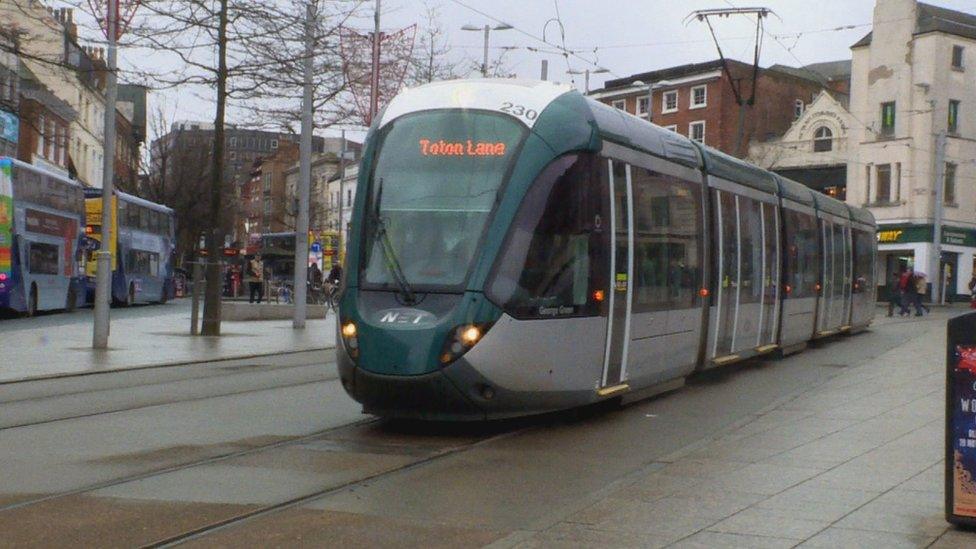
The tram line in Nottingham was extended in 2015 using revenue from the Workplace Parking Levy
He said: "I think there is a danger of cities being anti-car and cities who are not anti-car, I think, will have an edge.
"We like our cars, we drive around, and people don't particularly like it if they're pushed out to the edges."
The fee for a space is currently £379 with exemptions for businesses with 10 spaces or fewer.
In some areas it has created parking problems which did not previously exist as drivers park on the roadside instead of in the car park.
John Townsend, who runs telecommunications firm EMTel, works from a shared business unit with a small number of shared spaces.
He does not receive a bill but has found parking to be such a problem for his staff and clients that he has moved part of his business out of the city.
He said: "People who work for larger companies, who don't want to pay the levy, have now parked here.
"People who run businesses take up the spaces very early in the morning which means by the time my staff get here there's nowhere to park at all."
A big investment was also made in Nottingham's railway station which has been fully revamped and turned into a "hub" for buses, trams and trains.
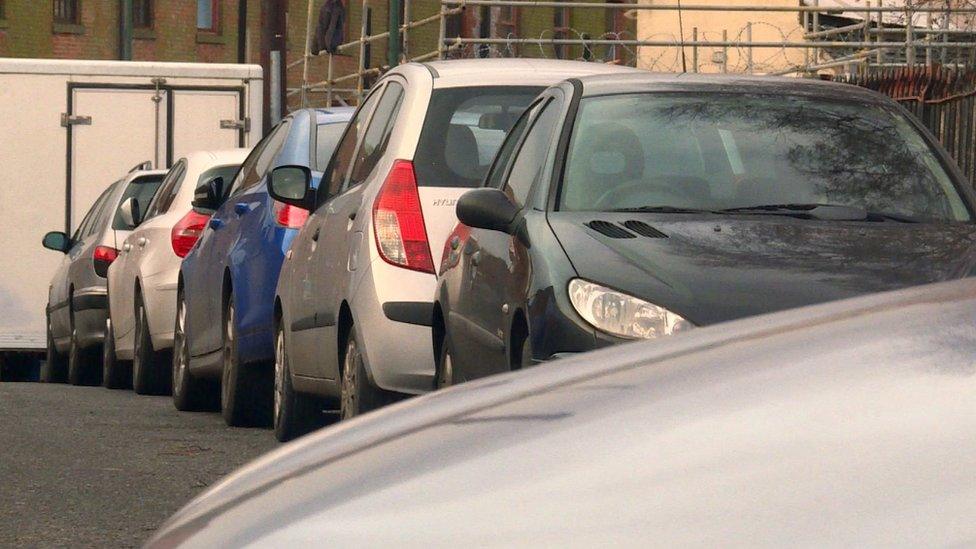
Some business owners in Nottingham say it has created new problems with more cars parking on the street in some areas
For Nottingham City Council, the decision to link the levy to public transport improvements is a classic carrot-and-stick approach.
It has not been politically damaging with the Labour administration winning three elections since the charge was brought in.
Councillor Nick McDonald, who is in charge of transport, said: "It's certainly about providing good options for people that are not just simply using their cars.
"But I think it's also about recognising that in a city, not just now but in 10, 20, or 30 years' time, you have to put a premium on car usage and car parking spaces because if you don't do that you end up with a gridlocked city."
One of the biggest payers is the University of Nottingham whose bill is more than £900,000.
The charge is passed on to staff but using a system where the most highly-paid with the biggest gas-guzzling vehicles pay the most money. Car use on the campus has reduced by 20%.
It is unclear whether a similar scheme will be included in the Scottish government's climate change plan but environmental group WWF Scotland has urged ministers not to dismiss the idea.
A Scottish government spokesman said: "Scotland is recognised as a world leader for its ambitious action on climate change. We exceeded our 2020 emissions reductions target of delivering 42% emissions reductions six years early and are committed to building on this progress.
"We will publish our draft Climate Change Plan on Thursday which will set out a number of policies and proposals to reduce emissions and show how everyone can play a role in tackling climate change.
"This action is crucial as tackling climate change is an investment in our economy, our environment and society."
- Published22 November 2016
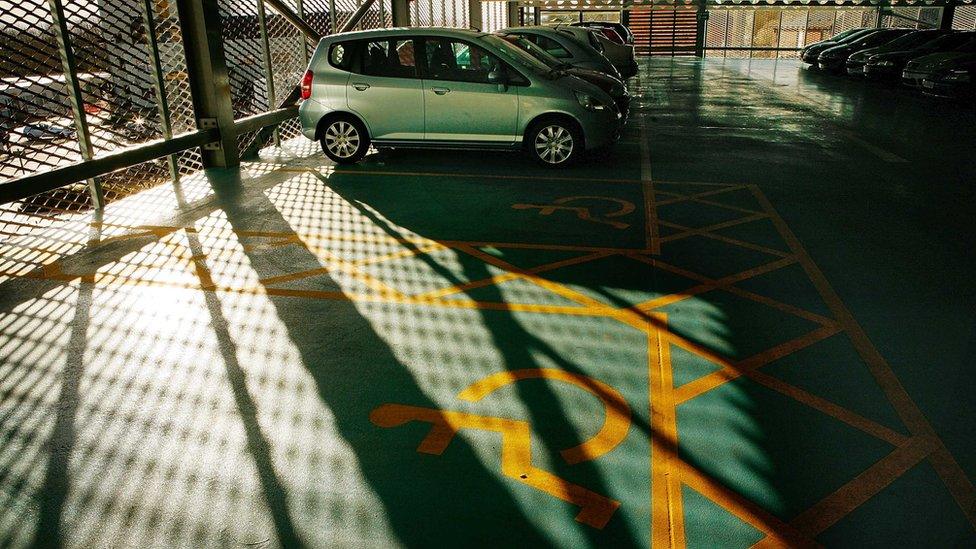
- Published15 November 2016
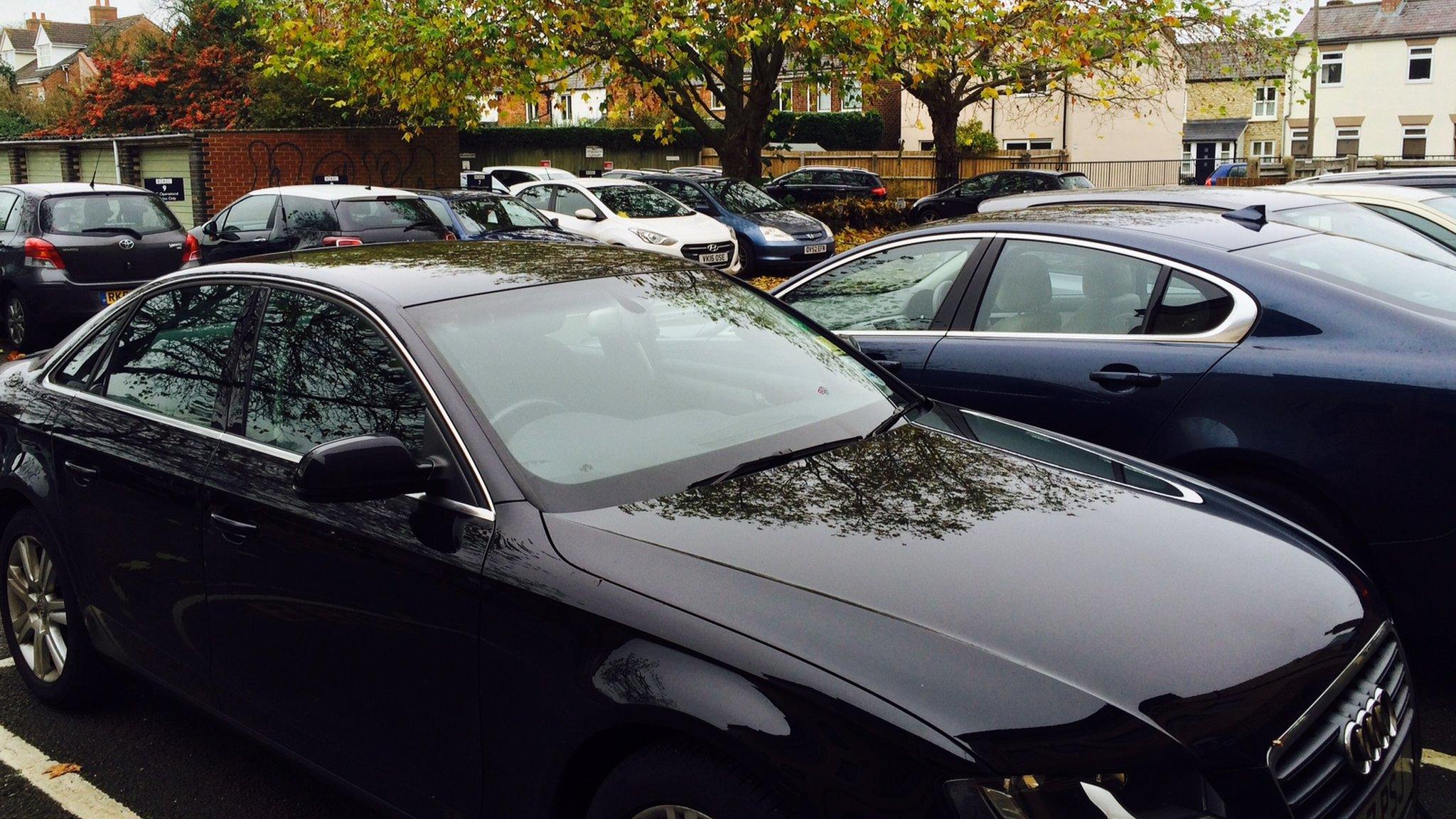
- Published1 April 2012
